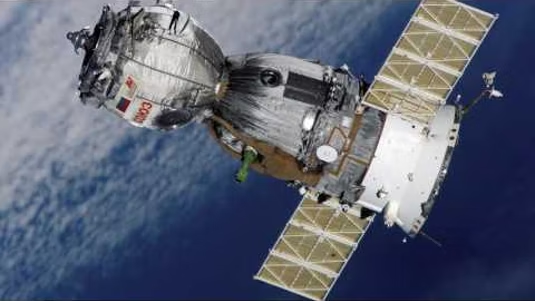Space Mission Design and Operations free videos and free material uploaded by École Polytechnique Fédérale de Lausanne Staff .
Unit 0 - Introduction to the Course
Course objectives
Motivation behind space exploration and utilization
The space pioneers, and brief history of human space exploration
The main space agencies in the world • Space utilization and exploration
Unit 1 - Introduction to Space Environment
Review of laws of mechanics • Introduction to the space environment including the transition from the atmosphere to space, microgravity, the electrical and thermal environments, orbital lifetime, space debris and asteroids/comets collision threats
Unit 2 - Introduction to Orbital Mechanics (I and II)
Orbital Mechanics I - dynamics of spaceflight; concept of gravitational well; orbital motion; Kepler's Laws; the case of circular orbits • Orbital Mechanics II - elliptical orbits; reference frames; orbital maneuvers; perturbations of orbital motion; peculiar orbits
Unit 3 - Orbital Mechanics Part III
Rendezvous in Low Earth Orbit (LEO); relative motion of the chaser vs. the target. Strategy to successfully achieve a rendezvous in LEO
Unit 4 - Orbital Mechanics Part IV
Interplanetary trajectories; Gravity Assist or Slingshot maneuvers • Propulsion in space - law of propulsion; concept of specific impulse; types of thrusters; electric propulsion; ascent into space, and re-entry
Unit 5 - Introduction to Space Systems and Space Tethers
Attitude measurement and control; attitude change; electrical power generation and distribution (overview); thermal balance (overview)
Space tethers (or cables) as an alternate method to generate electrical power on orbit; Dynamic applications of space tethers, Shuttle-based tether missions • Reliability; systems redundancy; risk management; safety design for space systems; human rating concept
Unit 6 - The Space Shuttle and the International Space Station (ISS)
Space Shuttle - concept; design; operations; Challenger and Columbia accidents • ISS; Soyuz and Progress; Logistic supply to ISS with ATV, HTV, and commercial vehicles
Unit 7 - Special Subjects on Human Spaceflight, and Future of Space Exploration
Extravehicular Activity (EVA) and space suits, space robotics
Astronaut training , commercial space , suborbital flights
Orion and the Space Launch System (SLS) • Future of Space Exploration and Conclusion
Space exploration is a very exciting subject. Consider the achievements of Sputnik 1, Yuri Gagarin's first flight in space, the Apollo missions to the Moon, followed by the Shuttle program, the Hubble Space Telescope launch and maintenance on orbit, and finally the assembly and exploitation of the International Space Station. These were challenging undertakings involving space agencies and industrial teams of several nations, and private companies as well. Space telescopes are in service, and several components of the solar system have been and are still actively visited by a number of unmanned probes and robots providing us with precious knowledge about our space environment as well as the far away Universe.
This course builds on university level physics and mechanics to introduce and illustrate orbital dynamics as is applied in the design of space missions. Simple tools will be provided to allow planning of missions on orbit around Earth or in the Solar System. You will learn from the experience of Claude Nicollier, one of the first ESA astronauts, specifically through his involvement in the Shuttle project and his role in the maintenance of the Hubble Space Telescope on two occasions.
The course focuses on conceptual understanding of space mechanics, maneuvers, propulsion and control systems used in all spacecraft. You will gain knowledge of the challenges related to the use of the space environment as a platform for scientific and utilitarian purposes.

- 0 Reviews
- 0 Students
- 57 Courses

Write a public review